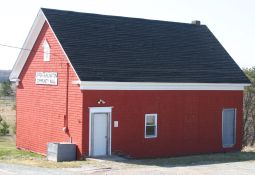|
|
Howe and Free Schools in Nova Scotia
Joseph Howe is one of the most famous public figures in Nova Scotia’s history. His life story has been well documented, but his failed efforts with respect to instituting free public schools are less well remembered. The failure was not due to lack of personal desire to see free schooling implemented, but more the incendiary mix of issues that dominated public affairs at the time.
Politics in the 1835-1870 period were possibly the most rancourous in all of Nova Scotia’s history. The period was one of great change, from Howe’s “freedom of the press trial” in 1835, through the winning of responsible government in 1848, the recruitment of soldiers from the colony of Nova Scotia to fight in the Crimean War in 1854, up to the biggest change of all, Confederation in 1867. Howe was deeply involved in all of these contentious matters, each inciting bitter feelings on both sides.
Howe was an extremely loyal Nova Scotian, boasting of its virtues, as well as knowing its shortcomings. A famous anecdote can be appreciated by any who attended the Kennetcook Dyke School near the Kennetcook River and its twice daily tides. “Boys brag of your country” he said to a Nova Scotia audience. “When I’m abroad I brag of everything Nova Scotia is, has, or can produce. When they beat me at everything else, I turn round on them and say “How high does your tide rise?”
Elected to the Assembly in 1837, he chaired its Committee on Education which investigated the principle of compulsory assessment to support schools. Their 1838 report concluded that however desirable improved education might be, the voters were not yet ready to support it. His judgment of representatives who voted for it was that “…the members…need never expect to see the inside of the Assembly room again.”
Just three years later in 1841 his stance was changed and he gave an address encouraging compulsory assessment regardless of voter support.
“If my constituents should desert me for adopting assessment, I would return home, pleased and proud and amply repaid, by seeing schoolhouses rising in every direction, and troops of children coming from them with intelligence beaming on their faces”.
Howe’s efforts were in vain and the measure defeated by 33-12.
It was another 15 years before the next promising attempt to introduce compulsory assessment was made. The Liberal government to which Howe belonged was successful in passing a measure on second reading by 37-9, but its leader William Young acceded to the Catholic bishop’s urging and then made an amendment allowing for separate religious schools. The opposition from Protestant members was so strong the bill was dropped. The government, one Assemblyman stated, had strangled its only-begotten child with its own hands.
It was two elections later in 1862 before Howe once again attempted to gain support for compulsory assessment in support of schools, but got nowhere with the Conservative opposition led by Tupper. In a speech reported in the British Colonist newspaper, on leaving the legislature for good in 1863, Howe expressed one of his great regrets.
“Among the few things… I deeply deplore, is the fact that I have been unable to carry out my own views respecting the education of this country. Twice sir…have I asked this legislature to assume a bold attitude on that subject…Twice sir, have I exerted the full powers of my intellect-the full force of my influence…to induce its members with genuine magnanimity to risk the probable temporary unpopularity, and twice have I failed.”
It was not until after the next election that Dr Charles Tupper, with a majority of 39 Conservatives to 14 Liberals was finally able to pass the Free Schools Act of 1864, and compulsory local taxation in 1865. The Confederation question then overtook all other issues and the decades of acrimony over free schools subsumed long enough for their value to overwhelm all opposition.
